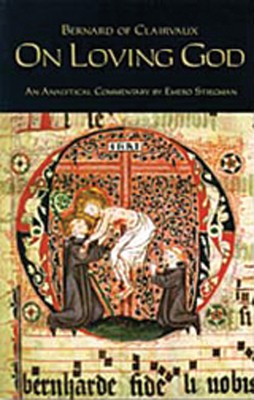
- We will send in 10–14 business days.
- Author: Bernard Of Clairvaux
- Publisher: Liturgical Press
- ISBN-10: 0879071141
- ISBN-13: 9780879071141
- Format: 14.2 x 21.5 x 1.3 cm, minkšti viršeliai
- Language: English
- SAVE -10% with code: EXTRA
Reviews
Description
Saint Bernard's On Loving God is one of his most delightful, and most widely read, works. It stands in the tradition of the Fathers of the Church, but it carries patristic teaching into the Middle Ages and into the cloister. Its famous affirmation that God is to be loved without limit, sine modo, is taken directly from the letters of Saint Augustine. While the tract is not an example of scholastic theology, it shows a typically twelfth-century love of logic and an unexpectedly precise use of terminology. In his analystic commentary, Emero Stiegman not only introduces readers to the abbot of Clairvaux's thought, but carefully analyses his language, his logic and his theology. In doing so, he demonstrates the vital importance of reading medieval authors on their own terms, without superimposing on them categories favored by later generations, even our own.
EXTRA 10 % discount with code: EXTRA
The promotion ends in 21d.19:39:20
The discount code is valid when purchasing from 10 €. Discounts do not stack.
- Author: Bernard Of Clairvaux
- Publisher: Liturgical Press
- ISBN-10: 0879071141
- ISBN-13: 9780879071141
- Format: 14.2 x 21.5 x 1.3 cm, minkšti viršeliai
- Language: English English
Saint Bernard's On Loving God is one of his most delightful, and most widely read, works. It stands in the tradition of the Fathers of the Church, but it carries patristic teaching into the Middle Ages and into the cloister. Its famous affirmation that God is to be loved without limit, sine modo, is taken directly from the letters of Saint Augustine. While the tract is not an example of scholastic theology, it shows a typically twelfth-century love of logic and an unexpectedly precise use of terminology. In his analystic commentary, Emero Stiegman not only introduces readers to the abbot of Clairvaux's thought, but carefully analyses his language, his logic and his theology. In doing so, he demonstrates the vital importance of reading medieval authors on their own terms, without superimposing on them categories favored by later generations, even our own.


Reviews